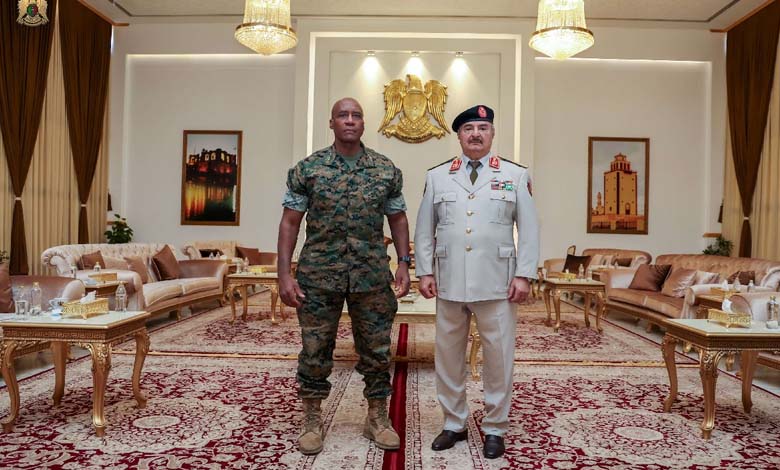U.S. aid to Libya reaches one billion dollars
Africom discusses the scale of U.S. support for Libya since 2011 amid concerns over growing Russian influence.

The United States Africa Command (Africom) revealed that U.S. support for Libya since 2011 has approached one billion dollars, with 247 million dollars allocated for humanitarian aid, amidst fears of increasing Russian influence in the country.
-
Washington does not want Moscow to dominate the Libyan scene
-
US website warns of infiltration of Congress by Libyan brotherhood
The “American Defense Forum” magazine, affiliated with Africom, reported on Friday details of discussions between U.S. and Libyan military officials in Malta, covering numerous developments in Libya and the aid dossier.
During the Malta meeting, several topics were discussed, including “community engagement in conflict zones, response to emerging crises, and effective coordination during natural disasters.”
-
Washington Backs Al-Kabir in Dispute with Dbeibah, Warns Against His Replacement
-
Libya Caught in the Crossfire of Great Power Rivalries… What Are the Possible Scenarios?
The U.S. aims to curb the influence of countries it deems hostile on the Libyan stage, such as Russia, while expressing its support for the country’s stability after numerous crises, the most recent being the Central Bank crisis.
Recently, Africom Commander General Michael Langley visited Libya, meeting with several military and political leaders, including Libyan National Army Commander Field Marshal Khalifa Haftar and Prime Minister of the Government of National Unity Abdul Hamid Dbeibeh. This visit aimed to contain recent tensions that threatened to bring the country back to violence, alongside concerns over growing Russian influence, particularly in the eastern region.
-
Details of Washington’s Diplomatic Return Plan to Libya on Congress’s Agenda
-
Bashagha accuses Dbeibeh of financial corruption, threatens to cut oil revenues
During his meeting with Haftar, Langley reiterated “the United States’ commitment to cooperating with professional military leaders across Libya to help Libyans protect their sovereignty and support their efforts toward unifying military institutions.”
The strengthening of military cooperation between the Libyan National Army and Russia has raised significant concerns in the U.S. and the West about Russia’s deepening influence in North Africa, especially after reports of joint military agreements and plans by Moscow to establish a naval base in eastern Libya.
-
By excluding Saif Al-Islam Kadhafi… The Muslim Brotherhood continues to derail the upcoming election
-
Rival Libyan military officers begun discussions on Monday
The arrival of two Russian warships “on a working visit” to the Tobruk naval base in eastern Libya last June was a clear example of Russia’s growing interest in Libya, which could open the door to further expansion across Africa and threaten the countries of the northern Mediterranean.
Russia has been involved in the Libyan crisis for several years, supporting the Libyan National Army in its fight against the Government of National Accord forces, a support that has alarmed Washington and contributed to the failure to seize Tripoli and liberate the western region from militia control.
-
Libyan military leaders met to find a solution to the current conflict
-
European-Libyan Cooperation to Secure Libyan Borders with Tunisia
This support has been a cornerstone for further military cooperation in the years following the war, with Haftar making several visits to Moscow and meeting with Russian officials, including President Vladimir Putin.
Wagner Group mercenaries, numbering between 2,000 and 2,500, are stationed at several military sites in Libya, including the Al-Qardabiya airbase, its seaport, and the Jufra airbase. They have also expanded to the southwest, where they are stationed at the Brak al-Shati airbase (700 km south of Tripoli).












